149. From the day of Lucia to
Christmas there was a week, which might explain why Alice
thought of how a pair of boots for her distant feet should be a
perennial Christmas present.
... Oh, my
poor little feet, I wonder who will put on shoes and stockings
for you now, dears? I'm sure I
sha'n't be able! I
shall be a great
deal too far off to
trouble myself about
you: you must manage
the best way you can
- but I must be kind
to them', thought
Alice, 'or perhaps
they wo'n't walk
the way I want to
go! Let me see, I'll
give them a new pair
of boots every
Christmas ...
|
DEC 13
(LUCIA) |
14 (*268) |
15 |
16 (350) |
17 |
 |
 |
 |
 |
 |
|
Gb2-12 |
Gb2-13 |
Gb2-14 (40) |
Gb2-15 (270 =
350 - 80) |
Gb2-16 |
|
CLOSE TO THE FULL MOON: |
|
KUH (Weeping)
=
μ
Capricorni (331.4),
γ
Gruis (331.5)
*290.0 = *331.4 - *41.4 |
No star listed (332) |
η
Piscis Austrini (333.4)
*292.0 = *333.4 - *41.4 |
Rooftop-12
(Swallow)
22h (334.8)
KAE
UH (Roof) = ο Aquarii
(334.0),
AL
KURHAH (White Spot) = ξ Cephei (334.4),
SADALMELIK
(Lucky King) = α Aquarii,
AL DHANAB (The Tail) = λ Gruis
(334.6), ι Aquarii, ν Pegasi (334.7)
*293.0 = *334.4 - *41.4 |
ι Pegasi (335.0),
ALNAIR (The Bright One) =
α
Gruis
(335.1),
μ
Piscis Austrini,
υ
Piscis Austrini (335.3),
WOO (Pestle) =
π
Pegasi
(335.7),
BAHAM =
θ
Pegasi (Good Luck of the Two Beasts),
τ
Piscis Austrini (335.8) |
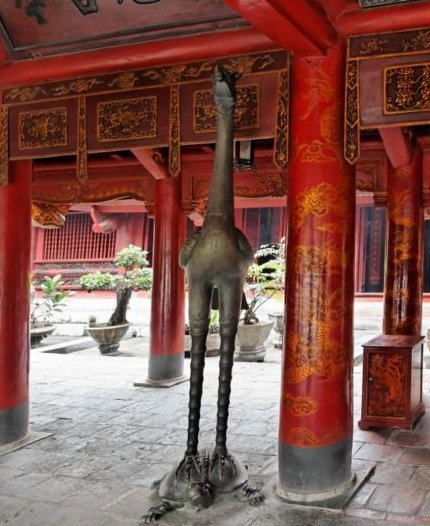
... Horapollo, the grammarian of Alexandria,
about A.D. 400, tells us that the crane was the
symbol of a star-observer in Egypt ... |
|
Febr 15 |
16 |
17 (413
→ 14 * 29½) |
18 |
19 (50) |
|
°Febr 11 (42) |
12 (408) |
13 |
2-14 |
15 (46) |
|
'Jan 19 (384) |
20 |
21 |
22 |
23 (*308) |
|
"Jan 5 (370) |
6 |
7 (372) |
8 (*293) |
9 |
|
CLOSE TO THE SUN: |
|
JUNE
13 (*84) |
14 (165
↔ 115
+ 50) |
15 |
16 |
17 (168) |
|
υ¹
Hydrae (148.4),
RAS ELASET BOREALIS
(Northern Head of the Lion) =
μ
Leonis
(148.7)
*107.0 = *148.4 - *41.4 |
TSEEN KE (Heaven's Record) =
φ
Velorum
(149.9)
June 10 AD 2025 (161)
MARS (*81) |
ν Leonis (150.1), π Leonis (150.6) |
υ² Hydrae (151.8) |
Al Jabhah-8 (Forehead)
/
Maghā-10 (Bountiful)
/
Sharru-14 (King)
10h (152.2)
AL JABHAH =
η
Leonis (152.4),
REGULUS (Little KIng)
=
α
Leonis
(152.7)
*111.0 = *152.4 - *41.4 |
|
Aug 16 (*148) |
17 |
18 |
19 |
20 (*152) |
|
°Aug 12 (*144) |
13 |
14 |
15 |
16
(*148) |
|
'July 20 (*121) |
21 |
22-7 |
23 |
24
(*125) |
|
"July 6 (*107) |
7 |
8 |
9 |
10
(*111) |
 |
 |
 |
 |
 |
|
Ga4-1 (84) |
Ga4-2 |
Ga4-3 |
Ga4-4 |
Ga4-5 (88) |
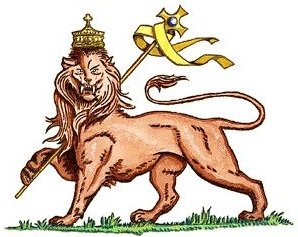 |
A pair of boots would be useful because on one side
would be Christmas Eve with the Sun at the right
ascension line at Situla (the Urn from where
fresh water was emerging) and on the other side would
be the day of John the Baptist:
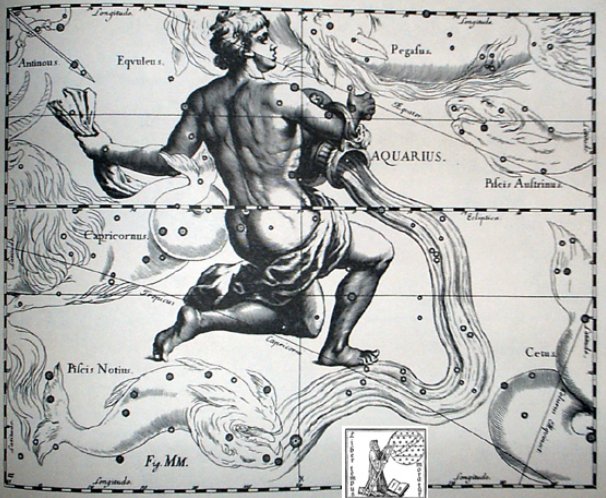
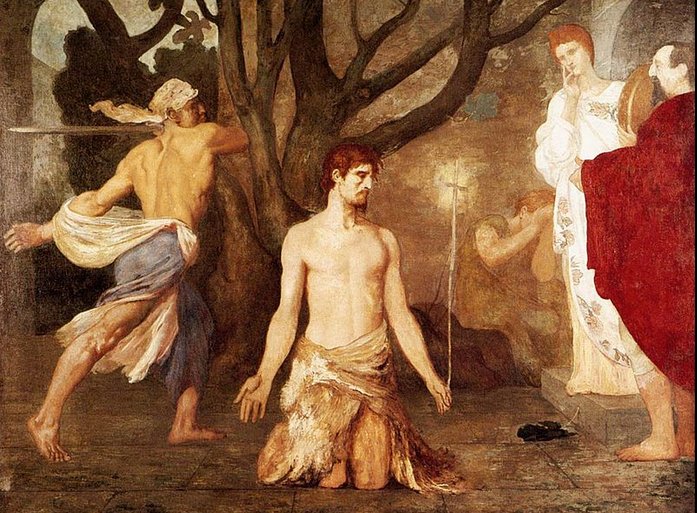
... That the Sun-gods Dionysus,
Apollo and Mithras were all also reputedly born at the
Winter solstice is well known, and the Christian Church
first fixed the Nativity
feast of Jesus Christ at the same season, in the year
A.D. 273. St. Chrysostom, a century
later, said that the intention was that 'while the
heathen were busied with their profane rites the
Christians might perform their holy ones without
disturbance', but justified the date as suitable for one
who was 'the Sun of Righteousness'
...

In South America, at the other side of the equator and
at the opposite side of the year, they saw a different
kind of fluid emerging from Leo. In order to ripen all
fruits it was necessary to add fertilizer, and what
could be better than urine from the Lion?
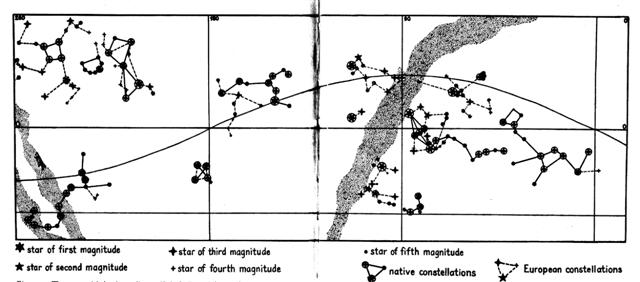
... There was no water in the
village. The lakes and rivers were dry.
Raven and Crow, two young
girls who were having their first menstrual courses,
were told to go and draw water from the ocean. Finding
the journey too long, Raven decided just to urinate into
her basket-bucket. She decieved no one and was severly
scolded. Crow returned much later but with drinking
water. As a punishment, Raven was condemned never to
find water in the summer; only in winter would she find
something to drink. For that reason the Raven never
drinks during the hot months; she speaks with a raucous
voice because of her dry throat ...
... On the fifteenth day of the month of October (tangaroa
uri), Nonoma left the house [he ea mai roto i
te hare] during the night [i te po] to
urinate outdoors [ki kaho.mimi].
At this point Ira called out [he rangi] to Nonoma,
'Look at the canoe!' Nonoma ran [he tahuti], he
quickly went to Te Hiringa Heru (a ravine in the side of the
crater Rano Kau) and looked around. There he saw the double
canoe way out near the (offshore) islets [i te motu o
haho], and the two (hulls of the canoe) were lashed
together ... [E:75]
The Chinese connected
Crow with
the star Ain. When the Sun was at ε Taur
(Ain), then
the Full Moon should ideally be visible at the right
axcension line connected with Antares.
... Antares,
visible in the morning sky of December-January, came to
stand for summer heat; hence the saying, 'Rehua
cooks (ripens) all fruit' [hakatupu]. The
generally accepted version of the Rehua myth,
according to Best, is that Rehua had two wives,
the stars on either side of Antares. One was
Ruhi-te-rangi or Pekehawani, the
personification of summer languor (ruhi), the
other Whaka-onge-kai, She-who-makes-food-scarce
before the new crops can be harvested ...
|
0h (80) |
MARCH 22 |
23 (82) |
24 |
25 (84) |
26 (*370) |
|
NO GLYPH |
 |
 |
 |
 |
 |
|
Ga1-1 |
Ga1-2 |
Ga1-3 |
Ga1-4 |
Ga1-5 |
 |
 |
 |
 |
 |
 |
|
(229 + 136) |
Gb5-13 (365 + 1) |
Gb5-14 |
Gb5-15 |
Gb5-16 (140) |
(450 - 80 = 370) |
|
PLACE OF THE SUN: |
|
HYADUM II = δ¹ Tauri
(64.2)
Jan 20 AD 2023 (385
→ 354 + 31) MARS |
Net-19 (Crow)
AIN (Eye) =
ε
Tauri,
θ¹
Tauri,
θ²
Tauri (65.7)
Jan 5 AD 2023 (370
→ 354 + 15) MARS |
No star listed (66) |
No star listed (67) |
Rohini-4 (The Red
One)
/
Pidnu-sha-Shame-4
(Furrow of Heaven)
/
ANA-MURI-2 (Rear
pillar - at the foot
of which was the
place for tattooing)
ALDEBARAN = α Tauri
(68.2),
THEEMIN = υ² Eridani
(68.5)
Sept 7 AD 2022 (250
→ 235 + 15) MARS
Febr 4 AD 2023 (400
→ 260 + 40) MARS |
No star listed (69) |
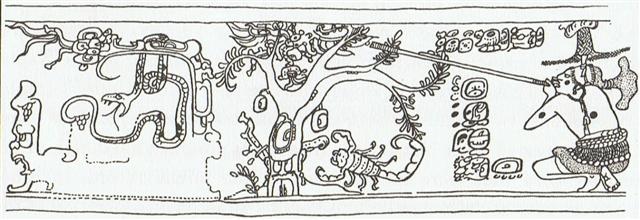 |
|
May 24 |
25 (145) |
26 |
27 |
5 Imix 9 Kumk'u |
29 |
|
°May 20 |
21 |
22 |
23 |
24 (144) |
25 |
|
'April 27 |
28 |
29 |
30 |
'May 1 (121) |
2 |
|
"April 13 |
14 (104) |
15 |
16 (→
1½ * 314) |
17 (107, 472) |
18 |
|
THE NAKSHATRA
VIEW: |
|
SEPT 20 (*183) |
21 (264) |
EQUINOX |
23 |
24 |
25 (450 - 182) |
|
Heart-5 (Fox)
σ Scorpii (247.0),
HEJIAN = γ Herculis
(247.2), ψ Ophiuchi
(247.7( |
ρ Ophiuchi (248.1),
KAJAM (Club) = ω
Herculis
(248.3), χ Ophiuchi
(248.5),
SHE LOW (Market
Tower) = υ Ophiuchi,
Tr. Austr. (248.7),
ζ Tr. Austr. (248.8) |
Al Kalb-16 (The
Heart)
/
Jyeshtha-18 (Eldest)
/
ANA-MUA-1 (Entrance
pillar)
ANTARES = α Scorpii
(249.1),
MARFIK (Elbow) = λ
Ophiuchi, φ Ophiuchi
(249.5), ω
Ophiuchi
(249.8)
Dec 7 AD 2023 (*261
→ 9 * 29) MARS |
γ
Apodis (250.1), σ Herculis (250.3), θ Tr. Austr.
(250.6), τ Scorpii (250.7) |
HAN = ζ Ophiuchi
(251.0) |
ζ Herculis, η Tr.
Austr. (252.1), η
Herculis, β Apodis
(252.5) |
 |
|
Nov 23 (327) |
24 |
25
(*249) |
26 |
27 |
28 |
|
°Nov 19 |
20 |
21 (*245) |
22 |
23 |
24 |
|
'Oct 27 (300) |
28 |
29 (*222) |
30 |
31 |
'Nov 1 |
|
"Oct 13 (286) |
14 |
15 (*208) |
16 |
17 |
18 |
 |
 |
 |
 |
 |
 |
|
Ga7-14 (183) |
Ga7-15 |
Ga7-16 |
Ga7-17 |
Ga7-18 |
Ga7-19 (370 - 182) |
|
... Nut, whom the
Greeks sometimes
identified with
Rhea, was goddess of
the sky, but it was
debatable if in
historical times she
was the object of a
genuine cult. She
was Geb's twin
sister and, it was
said, married him
secretly and against
the will of Ra.
Angered, Ra had the
couple brutally
separated by Shu and
afterwards decreed
that Nut could not
bear a child in any
given month of any
year. Thoth,
Plutarch tells us,
happily had pity on
her. Playing
draughts with the
Moon, he won in the
course of several
games a
seventy-second part
of the Moon's light
with which he
composed five new
days. As these five
intercalated days
did not belong to
the official
Egyptian calendar of
three hundred and
sixty days, Nut was
thus able to give
birth successively
to five children:
Osiris, Haroeris
(Horus), Set, Isis
and Nepthys ...:
 |
... Up to the present time,
fertility spells
for fowls have played an important role. Especially
effective were the so-called 'chicken skulls' (puoko
moa) - that is, the skulls of dead chiefs, often
marked by incisions, that were considered a source of
mana. Their task is explained as follows: 'The
skulls of the chiefs are for the chicken, so that
thousands may be born' (te puoko ariki mo te moa, mo
topa o te piere) ... As
long as the source of mana is kept in the house, the
hens are impregnated (he rei te moa i te uha),
they lay eggs (he ne'ine'i te uha i te mamari),
and the chicks are hatched (he topa te maanga).
After a period of time, the beneficial skull has to be
removed, because otherwise the hens become exhausted
from laying eggs ...
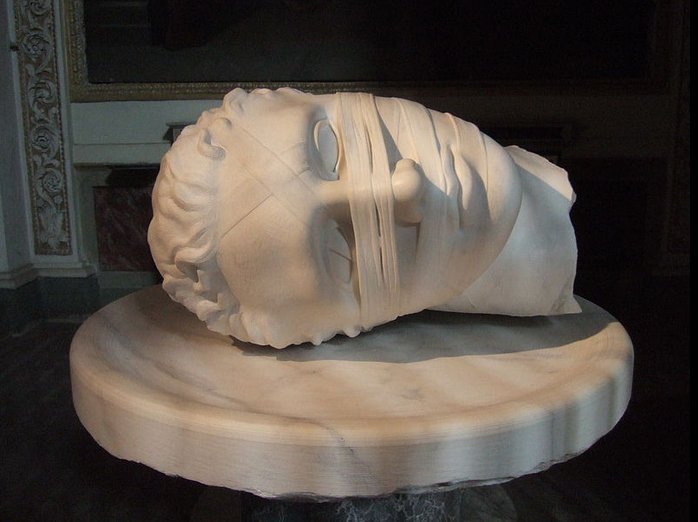
|




















